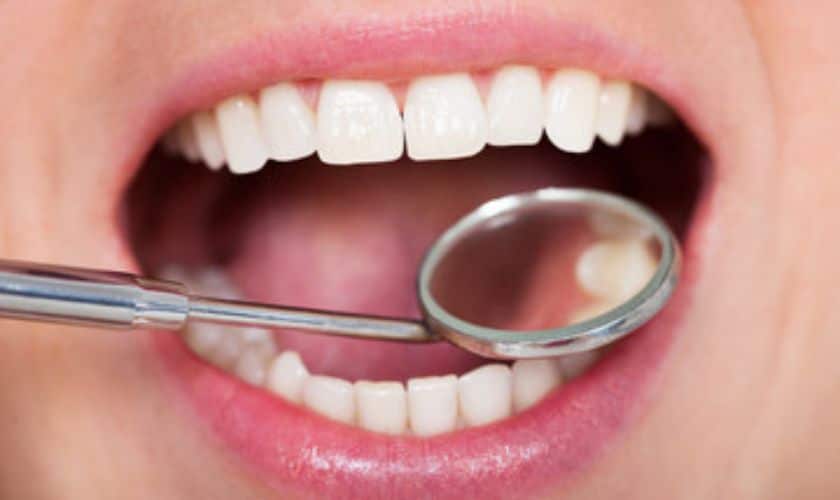5 Ways To Maintain An Oral Hygiene
Having good oral hygiene is essential for your overall health and well-being. Poor oral hygiene can lead to oral diseases such as cavities, gingivitis, periodontal disease, and oral cancer. Good oral hygiene helps prevent these diseases and also helps keep your teeth looking white and healthy. Here are five ways to maintain an oral hygiene routine that will help you stay fit and have a beautiful smile.
Brushing Your Teeth
Brushing your teeth twice daily is the most basic way to maintain oral hygiene. To do it effectively:
- Brush with a soft-bristled toothbrush for at least two or three minutes every time you brush.
- Cover all surfaces of your teeth and the surrounding area.
- When you are done brushing, rinse your mouth with water.
-
Use Fluoride Toothpaste
Using toothpaste containing fluoride will help to protect your teeth from cavities and oral diseases. Fluoride also helps strengthen tooth enamel, making it more resistant to acid erosion caused by plaque bacteria.
-
Replace Your Toothbrush Regularly
Your toothbrush should be replaced every three months or sooner if the bristles are frayed or worn out. Worn-out toothbrushes can’t effectively remove plaque and bacteria from your teeth, leaving you at risk of oral disease.
-
Clean Between Your Teeth
It would help if you used dental floss or an interdental cleaner to remove plaque and food particles stuck between your teeth. This is important because brushing alone can’t reach all the crannies & nooks in your mouth, leaving those areas vulnerable to oral diseases.
Eating Nutritionally Balanced Meals
Eating healthy, nutritious meals will help you maintain oral hygiene by providing your body with the essential vitamins and minerals for oral health. Avoid sugary snacks as much as possible, as sugar increases the risk of tooth decay. Eating crunchy fruits and vegetables, such as apples, celery, carrots, cucumbers, etc., also helps scrape away plaque from the surfaces of your teeth.
-
Avoid Processed Foods
Processed foods contain additives, preservatives, and artificial ingredients that can lead to oral health problems. These substances can cause oral inflammation and dryness in the mouth, weaken the enamel of your teeth, and, most importantly, increase the risk of cavities. So it is best to avoid processed foods as much as possible.
-
Drink Plenty Of Water
Water helps keep your oral cavity hydrated and also washes away food particles from your teeth that are left behind after meals. Staying well-rated also prevents dry mouth, which can lead to oral diseases such as gingivitis periodontal disease.
-
Avoid Alcohol and Tobacco
Alcohol and tobacco use can cause oral problems such as gum disease, tooth decay, and oral cancer. So it is best to avoid these substances for your oral hygiene.
Regular Dental Check-Ups
Visiting your dentist regularly is an essential part of oral hygiene. Seeing a dentist every six months helps you detect oral problems before they become serious. During check-ups, your dentist will professionally clean your teeth to remove plaque buildup, which brushing alone can’t do.
-
Professional Teeth Cleanings
Having professional teeth cleaning done by a dentist every six months helps maintain oral health and prevent oral diseases such as gingivitis and periodontal disease.
-
Professional X-ray Exams
Having professional x-ray exams done by a dentist every year or two helps detect oral problems that can’t be seen with the human eye. This is important for detecting oral diseases and cavities early on before they become serious.
-
Have Regular Oral Cancer Screenings
Regular oral cancer screenings by your dentist will help you detect oral cancer in its early stages when it is most treatable. Early detection of oral cancer significantly increases your chances of successful treatment, so regular oral cancer screenings are essential for maintaining oral hygiene.
Maintaining oral hygiene is essential for keeping your mouth healthy and preventing oral diseases. Brushing and flossing regularly, eating a balanced diet, and visiting the dentist regularly are all crucial steps to maintaining oral hygiene. By following these steps, you can avoid oral problems in the future and keep your teeth looking their best.
Frequently Asked Questions
Q1: How often should I brush my teeth?
A1: You should brush your teeth twice daily with fluoride toothpaste for two minutes.
Q2: How often should I visit the dentist?
A2: You should visit the dentist every six months to have professional cleanings done and detect oral problems early on before they become serious.
Q3: What foods should I avoid for oral health?
A3: You should avoid sugary snacks and processed foods as much as possible, as these can lead to oral problems such as tooth decay and gum diseases.

